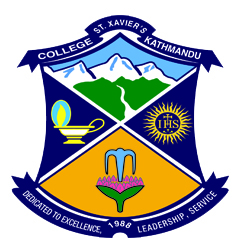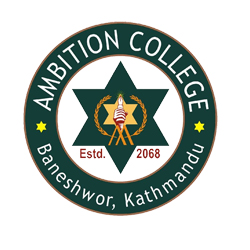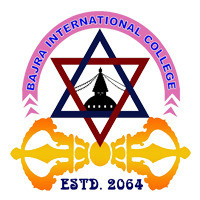Overview
Bachelor of Social Work (BSW) at Rainbow International College, Kathmandu
BSW at Rainbow International College (RIC), Kathmandu, prepares Students for professional social work practice in Nepal. The degree follows Tribhuvan University norms and balances classroom learning with supervised fieldwork.
Highlights
-
Affiliation: Tribhuvan University (TU)
-
Structure: Four academic years with progressive fieldwork
-
Focus Areas: Social case work, group work, community organization, research, policy, ethics
-
Field Integration: Agency placement with supervision and logbook documentation
-
Support: Counseling and terminal exam feedback to sustain steady progress
Curriculum Details
Core Domains
-
Foundations of social work: History, ethics, values, rights, and practice standards in Nepal
-
Human behavior and social environment: Psychology and sociology inputs that inform client assessment
-
Social case work and group work: Interviewing, relationship building, goal setting, and evaluation
-
Community organization and development: Mapping, participation, and local resource linkage
-
Social policy in Nepal: Welfare provisions, child and family services, health, and social protection view
-
Research methods: Problem statement, sampling, tools, data handling, and report writing
-
Thematic areas: Poverty, inequality, gender, disability, aging, addiction, conflict and disaster response, migration, and public health linkages
Fieldwork
-
Progressive placement each academic year under agency supervision
-
Minimum weekly hours as instructed by the department and TU guidelines
-
Logbook and supervision notes reviewed by faculty; viva conducted for practice learning
-
One community diagnosis or mini-project expected at senior phase with a structured report
Assessment
-
Terminal exams, assignments, presentations, and practice viva
-
Fieldwork assessment includes attendance, initiative, reflection notes, and agency feedback
-
A small research or capstone study in the final stage with defense
Objectives
-
Prepare Students for ethical, culturally aware practice across diverse communities in Nepal.
-
Build practical skills in assessment, planning, facilitation, advocacy, and coordination.
-
Encourage research habits so future decisions rest on evidence gathered responsibly.
-
Help Students document cases and programs that others can audit or continue.
Scope
-
Practice settings include community organizations, schools, hospitals, rehabilitation centers, local government units, and development agencies.
-
Roles cover case support, community mobilization, outreach, program assistance, and coordination.
-
Graduates who aim for policy or academic paths often continue to MSW/MA or M.Phil/Ph.D. based on interest and eligibility.
Learning Outcomes
Students who complete BSW at RIC usually can:
-
Conduct intake and initial assessment with respect and clarity.
-
Maintain case files that meet agency and audit expectations.
-
Facilitate group sessions using simple tools that invite participation.
-
Plan and run community meetings that lead to practical actions.
-
Apply research basics to small studies and present findings in clear language.
-
Collaborate with multi-disciplinary teams while upholding ethics and boundaries.
Skill Development Modules
-
Communication and interviewing skills with role-play and supervised feedback
-
Documentation standards for case notes, group records, and community reports
-
Program planning: Problem tree, objective setting, activity plan, and budgeting view
-
Research and data skills: Tool design, simple stats, and visual summaries
-
Advocacy and facilitation: Stakeholder meetings, referral networks, and follow-up plans
-
Self-care and supervision: Reflective logs, boundary setting, and stress-management routines
Teaching Methodology
-
Lectures linked to case examples from Nepal’s social sector.
-
Skills labs for interviewing, group facilitation, and report writing.
-
Fieldwork induction, agency orientation, and supervisor meetings.
-
Terminal exams and viva that connect theory to observed practice.
-
Community visits and short exposure trips where the curriculum recommends them.
Admission Requirements
-
Academic Eligibility: 10+2 or equivalent recognized in Nepal for bachelor entry.
-
Screening: College process based on application review and, where practiced, interview or aptitude check.
-
Documents: SEE/10+2 transcripts, character certificate, photos, ID/citizenship; foreign applicants add passport and equivalency.
-
Intake Notices: RIC publishes cycle-wise instructions that detail seats, timelines, and orientation dates.
Career Opportunities
-
Case worker, outreach worker, or counselor assistant in hospitals and community agencies
-
Program assistant or officer in NGOs/INGOs and municipal social units
-
School social work support, child and family services, and youth programs
-
Project roles in public health, disability inclusion, livelihoods, and disaster response
-
Research assistant in academic or policy centers
Scholarships and Financial Aid
-
Merit consideration for strong academic or field performance as per college policy.
-
Need-based support available within documented limits.
-
Recognition for ECA or community service where rules allow.
-
Applicants should follow current notices for criteria and submission windows.
Why Choose This Course?
-
A field-intensive social work degree under TU with stepwise practice exposure.
-
Clear supervision structure that values safety, reflection, and ethics.
-
Community-linked tasks that build confidence in real settings.
-
A Kathmandu campus that eases daily travel and helps you maintain attendance and field hours.
Conclusion
BSW at Rainbow International College offers a steady route into professional social work grounded in Nepal’s context. Students learn how to meet clients with respect, read community realities, write clear reports, and contribute to teams that serve people fairly. Families and educators can track growth through terminals, field logs, supervision notes, and a final defense that ties learning back to practice.






















